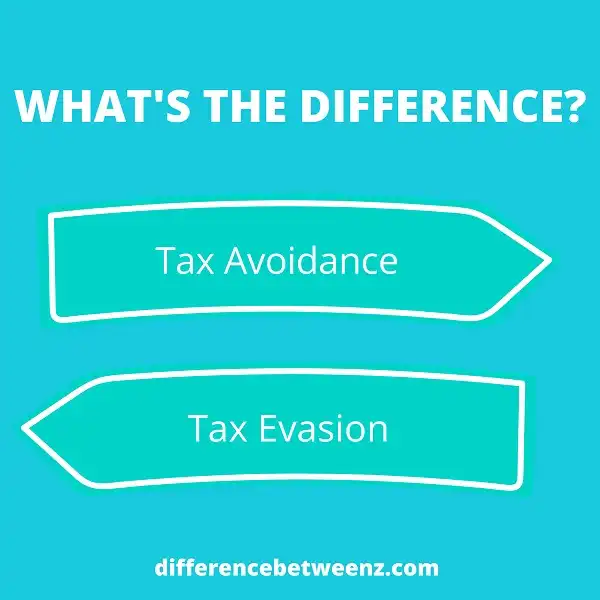Avoidance vs. Tax Evasion
What is Difference between Avoidance and Tax Evasion? It has been wisely said that nothing in this world is safe except death and taxes. However, many companies around the world have hired ingenious accountants in order to minimize the payment of taxes to the government. Some opt for tax evasion and others for circumvention. But what is really the difference between evading and avoiding taxes? This has been a question that a lot of people have asked for a long time, even some think they mean the same, but there is a big difference between Avoidance and Tax Evasion. So big it could mean going to jail or not. It is for this reason that we have decided to clarify the meaning of these words.
Difference between Avoidance and Tax Evasion
Tax Avoidance
Tax avoidance is an attempt to reduce the payment of taxes that a taxpayer has to pay during their stay and within the limits defined by law. When mentioned the tax avoidance we refer to the reduction of taxes WITHOUT VIOLATING THE LAW. In most cases ingenious accountants take advantage of so-called “legal gaps” and tax havens to avoid paying a large amount of taxes.
These cases have been presented both in small, medium and even giant companies such as Google, Microsoft and many others. In fact one of the most famous circumvention practices is the “double Irish with Dutch sandwich”.
Tax Evasion
On the other hand, physical evasion consists of reducing or completely eliminating the payment of taxes through illegal methods. Tax evasion usually involves forgery or concealment of the true nature of a business, with the aim of reducing your tax liability. Some of the most used practices to evade taxes are the payment of accrued interest through an account abroad or by sub-declaration of the real income obtained.
The main difference between evading and avoiding taxes is Tax avoidance is considered a way to reduce fiscal responsibility through unethical methods and can be considered amoral, but without violating the law. On the other hand, tax evasion is a crime that is paid by jail or at best a fine.
It is worth mentioning that most businesses resort to “fiscal planning”, the result of which is consistent with what the law says, but when such “planning” minimizes taxes through forms that are incompatible with lay, then it is evasion.


